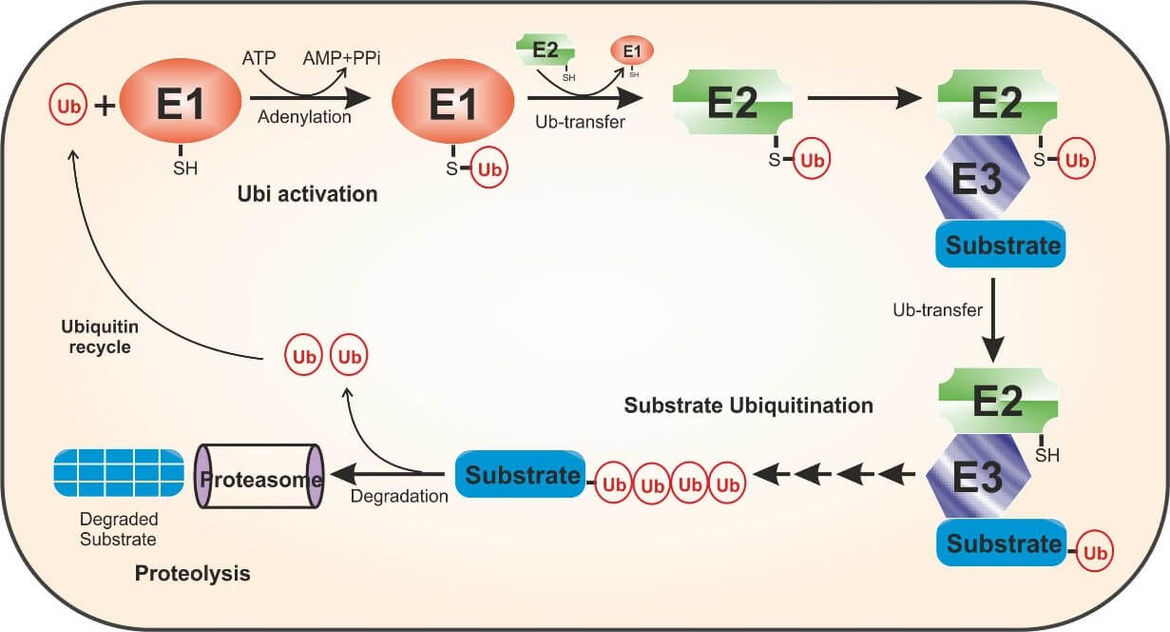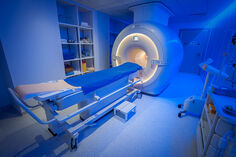Experimental Cardiology and Gut-Heart Axis
Research Focus
Heart disease is the leading cause of deaths worldwide. Disturbed cardiac protein homeostasis and chronic inflammation due to various factors, including altered gut microbiome (and its metabolic products) are emerging as major contributor to the deteriorating cardiac function.
Ubiquitin Proteasome System plays crucial role in cardiac protein homeostasis. E3 ubiquitin ligases, which mediate the final step in protein ubiquitination (Figure 1) and also provide the substrate recognition specificity, have recently been implicated in various cardiac processes and pathologies like heart development, signaling cascades, ion channel regulation, autophagy regulation, protein degradation, congenital heart diseases and cardiomyopathies. We are interested in deep understanding of how and through which substrates E3 ligases impact cardiac function in order to use this knowledge for future therapeutic approaches.

Similarly, altered gut microbiome also termed as “gut-dysbiosis” is increasingly being associated with heart failure. We and others have found strong correlation between changes in gut microbial content with the extent of failing heart. Deciphering the underlying mechanisms and specific molecules derived from these studies are necessary to understand if this correlation can be therapeutically targeted. Using state-of-the-art Multi-OMICs technologies, we aim to unearth these associations.
Research Techniques
- Classic Molecular Biology techniques
- Reporter- and Seahorse-assays
- Transgenic animals
- Metagenomics
- metabolomics and proteomics
Contact
PD Dr. rer. nat. Ashraf Yusuf Rangrez
University Hospital Heidelberg
Innere Medizin III
Im Neuenheimer Feld 669
69120 Heidelberg






